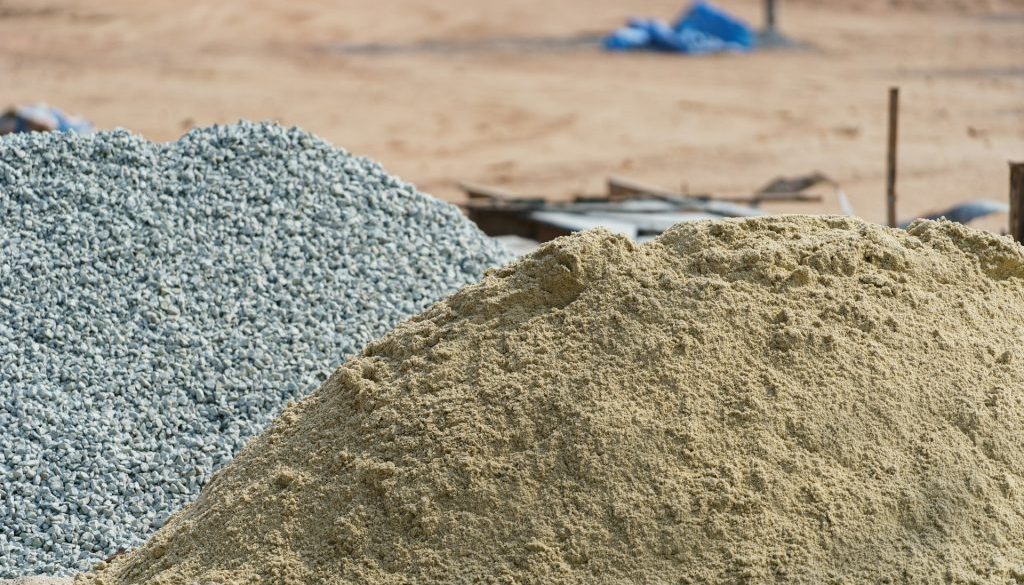Construction projects often run into a snag with the availability of materials, especially when it comes to aggregates. These materials, like gravel, sand, and crushed stone, are the backbone of construction, used in creating sturdy concrete foundations and roadways. However, these resources are not limitless, and the industry has been grappling with shortages. This scarcity takes a toll on construction timelines and costs, stressing the need for effective solutions.
As construction activities ramp up, especially in growing regions, the demand for aggregates spikes. The imbalance between supply and demand makes it important to explore new ways to overcome these shortages. Addressing this issue not only eases the pressure on natural resources but helps keep projects on track and reduces financial strain on builders.
Causes of Aggregates Shortages
Several factors fuel the shortage of aggregates. With urbanisation towering ever taller, the demand for these key materials rises beyond current supply levels. Natural resources are being exhausted quicker than they can replenish, leading to scarcity and inflated costs. Regulatory measures aimed at environmental preservation, while necessary, often add hurdles for extraction industries, slowing down the supply chain further.
To better understand this problem, it’s essential to recognise what causes it:
– Increased Demand: More construction projects mean more need for raw materials. Housing developments, infrastructure upgrades, and commercial buildings all contribute to the high demand.
– Limited Resources: Natural aggregate sources, such as gravel pits and rock quarries, are finite. As these resources dwindle, meeting construction needs becomes a challenge.
– Environmental Regulations: Stricter rules on mining and dredging can limit the amount of available supply. These regulations aim to protect the environment but complicate the availability of aggregates by extending the time it takes to extract and transport them.
Recognising these causes allows the industry to develop proactive strategies. By considering how these factors interplay, better resource management strategies can be implemented, helping to alleviate the pressures of shortages.
Sustainable Alternatives for Aggregates
In the quest to resolve aggregate shortages, attention turns to sustainable alternatives. Recycled aggregates provide a promising solution. By processing construction waste like old concrete and turning it into usable materials, the cycle of reuse starts, reducing the strain on natural resources.
Here are some benefits of using recycled aggregates:
– Resource Conservation: Recycling means utilising what is already available, which helps preserve natural resources.
– Cost Efficiency: Recycled materials often come at a lower price than newly extracted ones, benefiting builders working on tight budgets.
– Environmental Impact: By reducing the need for further extraction, recycling helps minimise environmental damage, keeping landscapes untouched.
In addition to recycling, innovative materials like geopolymer and ash-based products are emerging. These materials can replace traditional aggregates, offering durability and quality similar to concrete. As technology and research continue to advance, the construction industry can hope to see these alternatives become more mainstream, paving the way for a more sustainable future.
Leveraging Local Resources in Cheshire
Utilising local resources holds significant potential in easing the challenges of aggregate shortages, especially in places like Cheshire. Sourcing materials locally not only reduces transportation costs and carbon emissions but also supports local businesses. Quarrying and material production closer to home streamline supply chains, making the process much more efficient and less prone to delays.
Cheshire offers several advantages when it comes to securing aggregates:
– Local Availability: Cheshire has numerous sites that provide high-quality aggregates which can be used in various construction projects.
– Reduced Environmental Impact: Transporting materials over long distances increases fuel consumption and pollution. By sourcing locally, construction companies can significantly cut down on their carbon footprint.
– Support for Local Economy: Purchasing from local suppliers helps bolster the local economy, ensuring that the cycle of production and consumption benefits the community.
Furthermore, services that manage and recycle construction waste are crucial in ensuring a sustainable supply of materials. By handling construction waste efficiently, these services transform what could be landfill-bound rubbish into reusable aggregates, contributing to both economic and environmental well-being.
Future Trends in Aggregates Supply
The construction industry always looks ahead to predict trends and shifts, particularly in resource availability. In the coming years, innovative solutions are likely to become more commonplace. Technological advances can offer ways to refine the recycling process, enhancing the quality and performance of these materials in building projects.
Expect to see these trends gaining traction:
– Smart Recycling Technologies: Incorporating AI and machine learning to improve sorting and processing of used materials can increase efficiency and precision.
– Material Innovations: Products like bio-concrete and advanced polymers are being explored as potential replacements for traditional aggregates. These materials not only meet engineering requirements but also enhance sustainability.
– Policy Adjustments: Future regulations may favour materials that promise lower environmental impact, steering industry practices towards green solutions.
Adopting sustainable practices isn’t just about meeting regulations or consumer pressure. It’s about preparing for the future while ensuring present needs are satisfactorily met. Embracing these changes can position businesses to thrive through changes in supply dynamics.
Making a Difference with Enviro Skip Hire
Turning the focus to practical steps can guide companies through the maze of aggregate shortages effectively. Considering services like those offered by local experts provides a great starting point for managing construction waste and obtaining necessary materials efficiently.
Hiring a skip service that’s familiar with the needs of the region and has concrete experience in waste management makes a massive difference. Here’s how to get started:
1. Assess Your Needs: Determine the volume and type of waste your project will produce. This informs the choice of skip size and recycling strategies.
2. Choose the Right Service: Select a skip hire service that offers comprehensive waste management, recycling, and compliance with environmental regulations.
3. Plan for Efficient Use: Schedule regular pick-ups and ensure the proper segregation of waste to maximise recycling potential.
Tackling aggregates shortages demands a multifaceted approach, combining innovative materials, local sourcing, and efficient waste management. By taking these steps, the construction industry can maintain momentum while supporting sustainability goals.
Solving Aggregates Shortages Together
Addressing the materials crunch in construction requires a community effort. By focusing on sustainable alternatives and leveraging local resources, the industry can mitigate their impact while planning for long-term growth. As each piece of the puzzle comes into place—from local sourcing to advanced recycling technologies—the industry moves closer to a more sustainable and responsive supply chain.
With shared commitment and informed choices, communities like Cheshire can thrive even in the face of shortages. Engaging in these efforts not only preserves our environment for future generations but also ensures that construction projects remain feasible and cost-effective. Working together paves the way for a resilient future.
To keep your construction projects in Cheshire running smoothly while reducing environmental impact, it makes sense to work with professionals who understand responsible waste handling. Enviro Skip Hire offers practical support and local knowledge that can help you manage materials more effectively. Find out how your site can benefit from reliable skip hire in Cheshire.




